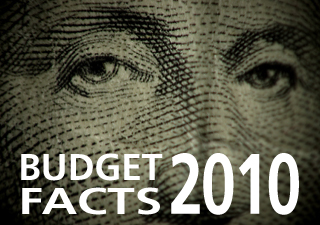Fact Sheet

Budget Facts 2010: Natural Gas Severance Tax
Pennsylvania faces a projected General Fund shortfall of at least $500 million. Gov. Rendell proposed a $29 billion budget for 2010-11 that increases business taxes, imposes new taxes on natural gas and tobacco products, and expanding the sales tax to include many goods and services currently exempt. This is the third in a series of fact sheets on the PA state budget.
Natural gas booming Marcellus Shale Formation
- The Marcellus Shale is a thick and difficult-to-drill geological formation containing natural gas nearly a mile or more under much of Pennsylvania.
- More than two-thirds of Pennsylvania contains accessible natural gas.
- Recent estimates place recoverable gas in the entire formation (not just Pennsylvania) at 489 trillion cubic feet.
- As of 2008, shale drilling created an estimated 29,000 jobs, and another 98,000 jobs are projected to be created in 2010.
Rendell’s Proposed Tax
- Gov. Rendell has proposed a tax of 5% on the value of extracted natural gas, plus $.047 per thousand cubic feet of extracted gas. There is an exemption for marginal wells producing less than 60,000 cubic feet per day.
- Rendell expects to collect $178 million in the upcoming fiscal year from the proposed severance tax and $500 million per year by 2014-15.
- Ninety percent of severance tax revenue would go to the state General Fund-not for local environmental or infrastructure improvements as claimed by most tax proponents.
- The governor modeled his proposal after West Virginia’s severance tax.
- In the last 10 years, drilling activity in the Commonwealth has increase by 400%, however, West Virginia has only seen a 20% increase.
Facts and Myths About the Severance Tax
- Tax supporters highlight the fact that other states already have a natural gas tax, however, this is only part of the story; most state’s with difficult-to-drill shale formations have reduced their severance tax to encourage drilling. For example:
- Texas and Arkansas reduced their severance tax for high-cost gas wells by nearly 80%.
- Oklahoma applies a severance tax of 7% on natural gas extraction, but exempts all horizontally-drilled wells until payback (when the company recovers its multi-million dollar per-well head investment).
- Louisiana suspends its severance tax for horizontally-drilled wells until after they have been in production for two years or reached payback.
- A similar moratorium on any sort of severance tax will allow the natural gas industry to emerge and bring jobs, revenue, and economic development to Pennsylvania.
- It is a false claim that drillers will come to Pennsylvania regardless of a tax.
- Pennsylvania’s natural gas reserves, while large and close to destination markets, only remain attractive investments if costs are carefully controlled and expenses minimized.
- The proposed tax is estimated to reduce in-state drilling activity by at least 30% which would cost Pennsylvania $880 million in lost state and local taxes by 2020.
- Devon Energy, one of Fortune Magazine’s 100 Most Admirable Companies, stated on a CNBC interview that the company would not consider drilling in Pennsylvania because of the “political problems”.
- Drilling companies are already paying their “fair share” to the state without a new tax.
- Most drilling companies pay Pennsylvania’s Corporate Net Income Tax, Capital Stock and Franchise Tax, leasing fees, and royalty payments.
- The state has allowed drilling on over 400,000 acres of state forests, receiving nearly $300 million in leasing fees. In addition, the state has received over $250,000 in royalty payments for the nine wells currently in production.
- Reasonable and competitive tax rates will provide long-term growth and benefits to Pennsylvania’s economy.
- Marcellus Shale exploration doesn’t ravage the environment or local infrastructure.
- Drilling companies are required to put up bonds for all posted roads and bridges, and repair any damage they cause.
- Environmental regulations are tightly monitored by six different state agencies. Drillers are responsible for any groundwater contamination within 1,000 feet of each well.
- A Penn State University study found that more than 95% of complaints received from homeowners suspecting contamination from gas drilling were actually due to preexisting problems or other activities, such as agriculture.
- Pennsylvania laws ensure drilling companies, and not taxpayers, are held responsible for their environmental and infrastructural damages.
###
For more information on the Pennsylvania Budget, visit CommonwealthFoundation.org/Budget